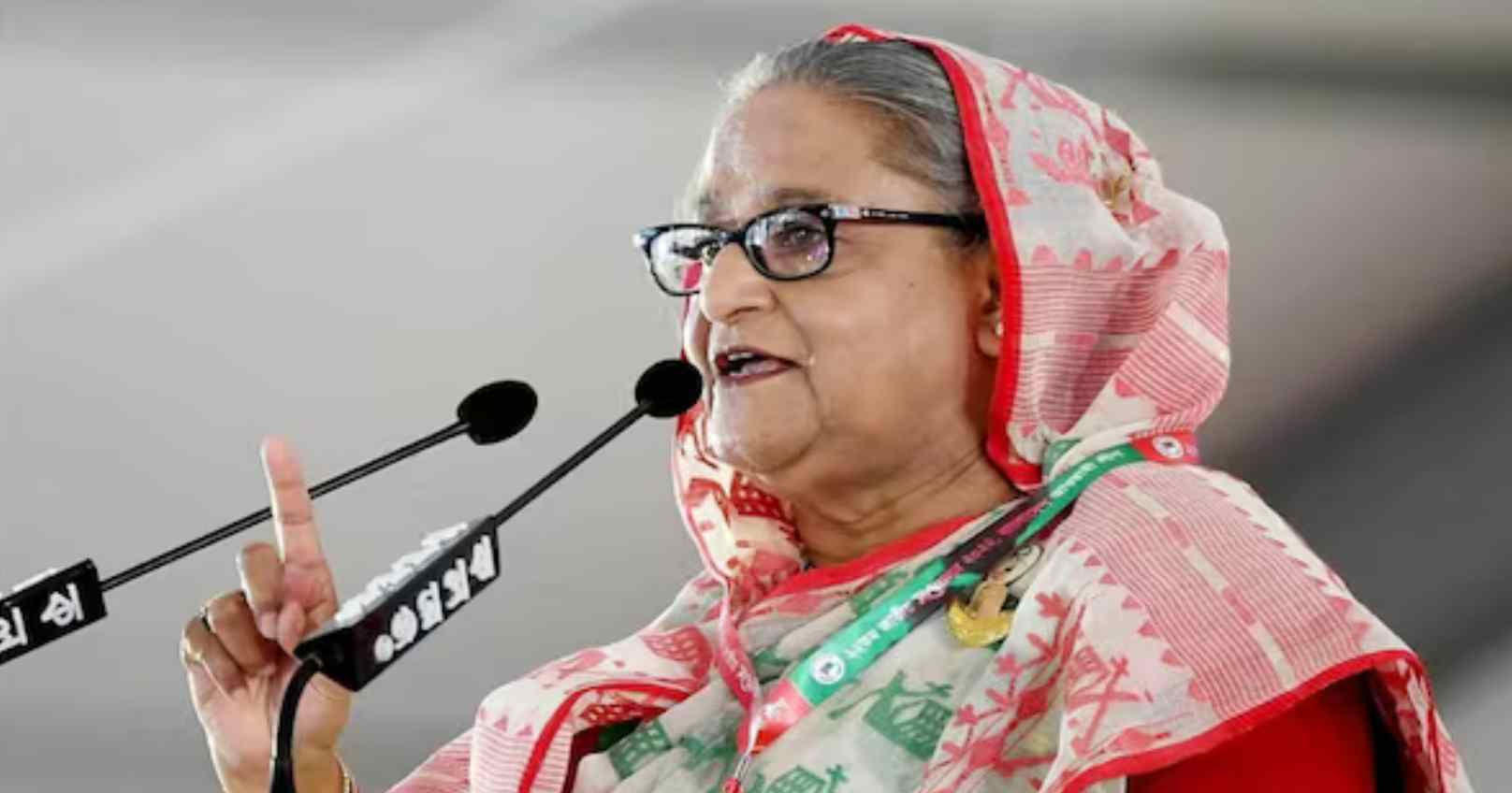Bangladesh has officially lodged a protest with India's Acting High Commissioner over what it described as “false and fabricated” statements made by former Prime Minister Sheikh Hasina. The protest, issued on Thursday, came in response to Hasina’s virtual address from exile in India, where she spoke against the Muhammad Yunus-led interim government. Dhaka labeled her comments as a “hostile act” and urged New Delhi to prevent her from making such remarks.
In a formal diplomatic note, Bangladesh’s Foreign Ministry expressed deep concern and disappointment, stating that Hasina’s statements were hurting national sentiment. It emphasized that her activities were damaging bilateral relations and could disrupt efforts to maintain a healthy diplomatic partnership between the two countries.
The protest followed Hasina’s speech on Wednesday night, in which she called on her supporters to resist the interim government. During her address, violent protests erupted in Dhaka, with a group of demonstrators setting fire to the historic residence of Sheikh Mujibur Rahman, Bangladesh’s founding leader and Hasina’s father. Several Awami League leaders were also targeted in arson attacks across the country.
Accusing Hasina of fueling instability, Bangladesh’s Foreign Ministry called on India to take immediate action to prevent her from making “inflammatory and misleading” statements through social media and other platforms while residing in India.
In her speech, Hasina condemned the attack on her father’s residence at Dhanmondi 32, a site deeply tied to Bangladesh’s independence movement. “They can demolish a building, but they cannot erase history. But they must also remember that history takes its revenge,” she said.
She further warned that despite efforts to erase her party’s legacy, “they have yet to find the strength to destroy our national flag, constitution, and the independence earned through the sacrifices of millions.”
Meanwhile, Bangladesh has renewed its demand for Hasina’s extradition to face charges related to alleged mass killings during the student protests that led to her ousting in mid-2024. The country’s International Crimes Tribunal (ICT), originally established to prosecute war crimes from the 1971 Liberation War, has issued arrest warrants for Hasina and several former officials, accusing them of crimes against humanity and genocide.
The court has ordered authorities to ensure Hasina’s appearance by February 12. In response, the interim government has revoked the passports of Hasina and 96 other individuals, citing their alleged involvement in enforced disappearances and killings during the Awami League-led government.
As tensions escalate, the diplomatic standoff between Bangladesh and India over Hasina’s presence in the country is expected to add another layer of complexity to regional relations.







